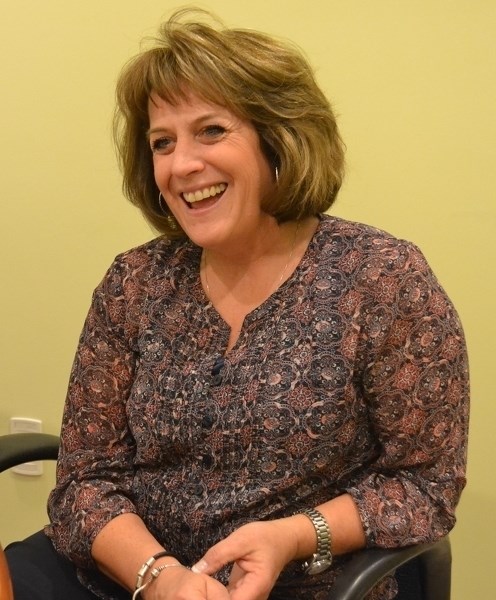A Supreme Court ruling and the Liberal government's new legislation on assisted suicide has heightened interest in palliative care in this community, according to Kathy Kemmere, vice-president of the Olds and District Hospice Society.
Palliative care is provided to people who have an apparent life-ending illness or condition.
“When I first started, when five ladies met, eight, nine years ago to talk about hospice, there was nothing,” Kemmere said during an interview with the Gazette.
“Now there's a buzz about it, right? I think this physician-assisted death, Supreme Court ruling, has got something to do with the fact that people are focusing on palliative care now.
“It begs to ask the question, if people are feeling that desperate at end of life, then what are we not doing? How are we not supporting people? Is there something more that we can do? It's a death denying, death defying society; really it is. But there's an increasing kind of interest in talking about dying.”
On Feb. 6, 2015, the Supreme Court struck down a law banning physician-assisted dying, saying that law violated the charter rights of Canadians.
The court gave the federal and provincial governments one year to come up with a new law on the matter.
In mid-January this year, the court granted a request from the new federal Liberal government for an extension to give it more time to come up with such a law.
Last month, the federal government presented a proposed law on assisted dying.
Under that legislation, only mentally competent adults over 18 with serious and incurable illnesses who are in an “advanced state of irreversible decline in capacity,” and who experience intolerable suffering would be allowed to consider assisted dying.
It says people should only be eligible for physician-assisted death when “natural death has become reasonably foreseeable.” But the bill does not say how close to death a person would need to be to qualify.
A request for such a death would have to be signed by two witnesses with no financial interest in the matter. Also, two doctors or nurse practitioners would have to examine it.
Under the law, a 15-day reflection period would also kick in, although it could be waived if a person was about to die, virtually at any time.
Kemmere said all that talk about the subject also highlights a need for people to plan for the end of their lives.
“The best time to think about your priorities in life and your values and who you would choose as an agent if you couldn't speak for yourself, is when you're healthy and not when you're in a compromised situation,” she said.
“If you can make those choices ahead of time and plan a little bit, then as you fail or your health fails or there are sudden changes, then you've got all that plan in place.
“It's like having a will. If you have a will, then it's all kind of laid out. It's a gift to your family to have that in place. If you already have a personal directive in place and you have talked to an agent, then if something should happen, there's no doubt. All those situations are already kind of talked about ahead of time.”
"It begs to ask the question if people are feeling that desperate at end of life, then what are we not doing? How are we not supporting people? Is there something more that we can do?" KATHY KEMMEREVICE-PRESIDENT OLDS AND DISTRICT HOSPICE SOCIETY



